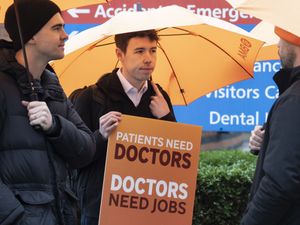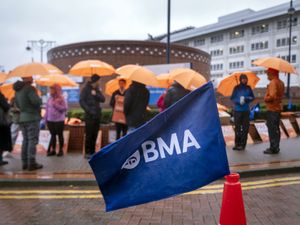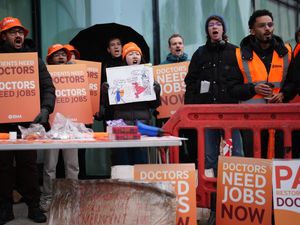Fighting fires? Most calls are to elderly falls
Fire crews at two Black Country stations were sent to deal with more than 2,000 elderly falls in a year - twice the amount of actual fire responses.
The crews at Wolverhampton and Fallings Park were the busiest across the West Midlands in 2016/17.
But out of the 2,156 responses at Wolverhampton, just 439 were for actual fires - 1,116 were for falls.
And at Fallings Park, out of 2,155 responses crews attended 553 actual fires - plus 1,003 falls.
The change in role for the firefighters is down to a Wolverhampton council contract won by West Midlands Fire Service called Telecare.
It sees a call centre call on the trauma-trained firefighters to help with a fall where the independent-living person is not injured.
On winning the contract last year, Phil Loach, Chief Fire Officer for West Midlands Fire Service, said it was 'a fantastic opportunity to help the most vulnerable members of our community'.
Wolverhampton Watch Commander David Nail said: "Our role has changed - we have always been first aid trained, but now we are going out more on responses to falls.
"We used the skills before at fires and road traffic collisions, now we are using it in elderly people's homes."
Mr Nail said it was adding strain on the station, which had taken no more resources on as a result.
The figures, which came from a Freedom of Information Act request showed the crew in Wolverhampton was called to 439 fires, 196 'special service' calls which include road crash and 405 false alarms.
At Fallings Park, crews attended 553 fires out of the 2,155 call-outs and 412 false alarms.
For West Bromwich's crews, they attended 814 actual fires out of the 1,879 call-outs. These also included 78 falls and 663 false alarms.
The crews attended the most 'special service' call-outs in the West Midlands - 324.
Dudley, Walsall and Haden Cross were also busy during the financial period, receiving 1,087, 1,055 and 866 call-outs respectively.
But between them, they attended 810 fires.




